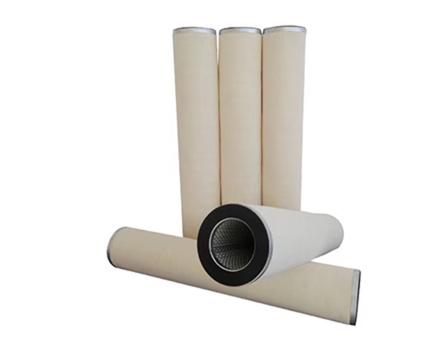 Tel:
+8615930870079
Tel:
+8615930870079
Dec . 07, 2024 09:25 Back to list
turbine air intake filters
The Importance of Turbine Air Intake Filters
In the realm of industrial power generation, particularly within gas turbines, the efficiency and longevity of these machines heavily depend on the integrity of their air intake systems. One critical component of this system is the turbine air intake filter, which plays a fundamental role in ensuring that the gas turbines operate at optimal performance levels.
Understanding Turbine Air Intake Filters
A turbine air intake filter serves to cleanse the air entering the turbine, filtering out particulates, pollutants, and moisture that could impair the engine's function. Gas turbines require large volumes of air for combustion, making them susceptible to airborne contaminants. Without effective filtration, these contaminants can lead to several detrimental effects, including reduced operational efficiency, increased fuel consumption, and shorten the turbines' lifespan.
Types of Filters
Turbine air intake filters can vary widely in type and specification, designed to cater to the specific needs of different applications. The most common types include mechanical filters, electrostatic filters, and HEPA (High-Efficiency Particulate Air) filters. Mechanical filters utilize woven materials to capture particles as air passes through, while electrostatic filters use an electrical charge to attract and trap contaminants. HEPA filters are renowned for their ability to filter out 99.97% of particles that are 0.3 microns in size, making them ideal for environments where air purity is of utmost importance.
The Role of Air Quality
turbine air intake filters

The effectiveness of turbine air intake filters correlates directly with the quality of the operational environment. In industrial settings, airborne dust, sand, and other particulates can be abundant, especially in arid regions or during construction activities. For power plants located in such environments, it is crucial to invest in high-quality filters and implement regular maintenance and replacement cycles. Monitoring air quality is also essential to determine the frequency of filter changes and ensure that turbines are not operating under compromised conditions.
Performance and Efficiency
A well-maintained turbine air intake filter not only protects the turbine but also enhances its performance. Clean filters contribute to improved airflow, which translates to better combustion efficiency. When a filter becomes clogged, airflow is restricted, leading to a condition known as choking, which can severely diminish engine performance and efficiency. This not only results in increased fuel usage but may also lead to higher emissions, which is contrary to modern standards for sustainability and environmental responsibility.
Maintenance Practices
To ensure optimal performance of turbine air intake filters, it is essential to implement a robust maintenance regime. Regular inspections and cleanings should be scheduled based on operating conditions and the manufacturer's recommendations. Many industries have adopted predictive maintenance strategies that utilize sensors and diagnostic tools to monitor filter performance in real time. By analyzing this data, operators can make informed decisions regarding when to clean or replace filters, thereby maximizing efficiency while minimizing downtime.
Conclusion
In conclusion, turbine air intake filters are vital to the efficient and reliable operation of gas turbines in industrial applications. Their ability to filter harmful particulates and pollutants not only protects the machinery but also enhances combustion efficiency, ultimately leading to cost savings and reduced environmental impact. With the emphasis on sustainability in today's energy sector, investing in high-quality air intake filtration systems and maintaining them diligently is more important than ever. As industries continue to evolve, so will the technologies surrounding turbine air intake filters, ensuring that they meet the rigorous demands of modern power generation while safeguarding both equipment and the environment.
-
Nano Fiber Technology: Revolutionizing Cartridge Dust Collector FiltersNewsAug.06,2025
-
How Activated Carbon Air Cartridges Eliminate OdorsNewsAug.06,2025
-
Dust Filter Cartridge Handling Fine Particulate MatterNewsAug.06,2025
-
Cartridge Dust Collector Filter for Welding Fume ExtractionNewsAug.06,2025
-
Activated Carbon Filter Cartridge Effectiveness Against VOCsNewsAug.06,2025
-
Activated Carbon Air Filter Cartridge Benefits ExplainedNewsAug.06,2025

 Email:
Email:





